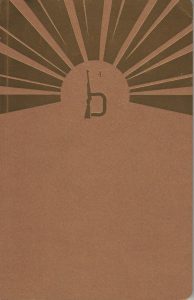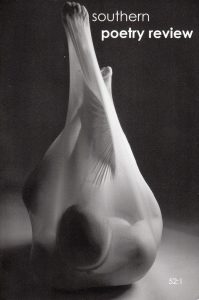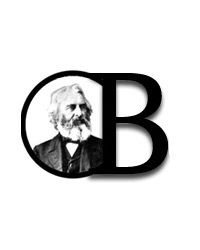Comments on the Absinthe Festival
 The Absinthe Festival of New European Film and Writing hosted by Oakland University, Friday May 9-10 was a great cultural getaway. Close to home, we made a mini-vacation of it and caught Eamonn Wall and Valzhyna Mort reading on Friday night.
The Absinthe Festival of New European Film and Writing hosted by Oakland University, Friday May 9-10 was a great cultural getaway. Close to home, we made a mini-vacation of it and caught Eamonn Wall and Valzhyna Mort reading on Friday night.
I’ve not heard of Eamonn Wall before, and I am grateful for the introduction to his works. Combined with strong, rooted imagery, a number of his works read like stories and were easy to follow for an oral reading, but I kept feeling that I wanted to go right back and read to myself what I had just heard in order to more fully absorb it. Refuge at DeSoto Bend, his newest collection published by Salmon Press, includes a section of poems on the Wexford Container Tragedy, a piece of history from 2001 I vaguely recalled – thirteen immigrants seeking asylum found in a crate that was misrouted before being brought to Wexford, Ireland. Eight of them had died. Eamonn’s treatment of this tragedy creates a historical retelling as well as emotional reliving of the event, but also attempts some sense of respectful remembrance.
Valzhyna Mort followed, and began in dramatic fashion by reading the first poem of her collection Factory of Tears (Copper Canyon Press) in Belarusian, then in English. She remarked on the nature of translation, that, because of cultural differences, “some things you just never get,” but how she also enjoyed translation “so much better than writing.” She continued reading from her collection, interspersed with commentary about her work. She remarked on some poems and their interpretations. For example, the poem “Men” readers often think is a love poem. “It’s not,” Mort clarified. “It’s a hate poem.”
In an interesting discussion of “A Poem About White Apples,” Mort reflected on the nature of translation by telling about one of her readings when she spoke with the sign interpreter. Before reading the poem, Mort explains that white apples are a common fruit in her native country, and that the poem is a reflection on that first moment when she truly felt displaced. How she craved the taste and texture of this specific fruit that could not be found in the U.S. At that previous reading, the sign interpreter had thanked her for this explanation, because having read the poem, he was going to interpret the apples as “breasts.” Mort said, “It’s just about apples.” I and others in the audience laughed at this story, but were brought up abruptly when she said, “And it’s a sad poem.” Then read on.
Much of her reading is this way; as you might think to relax and feel warmth in any moment, it is suddenly pulled up short, and the language – heavily metaphoric and imagistic – in her creations have a repeated pummeling effect on your core. It reminded me of how a little cartoon hero might seem so unassuming visually, but in punching its opponent, sends the villain flying through the air to smash through several brick walls, leaving the outline of the helpless body. Poem after poem, line after line of her work caught me, threw me, held me up against that wall before letting me drop down. It is exhausting poetry to read/hear, but of such allure that once is never enough. I bought her book so I could experience these feelings again and again.
It was curious that she mentioned several times that this or that poem might be “lighter” than the others, and read one saying that it would be a funny poem. She seemed almost apologetic that her poems did not bring laughter to the audience. Do we expect poets to make us laugh? I wondered. I have quickly come not to expect that from her poems, and am grateful for what they do deliver in terms of my responses to them. I don’t need to be made to laugh. Other emotional responses are just as important for me as a reader, and often times much more lasting.
Saturday brought the German film Yella , the Romanian film How I Spent the End of the World, both of which I would recommend to viewers, and a reading by Polish poet Piotr Sommer. Sommer’s works were a contrast to the previous evening’s readings. His works are short, almost hard to listen to because they go so quickly and were so condensed in their language and imagery. Several times, I wanted to say, “Would you read that one again?” but not because I wasn’t listening. I just needed a second chance to take it all in.
A Q&A followed his reading, and I asked, “What do you think is lost in translation and what do you think is gained in translation?” His being not only a writer whose works are translated, but a translator himself, he seemed to first beg off the question by saying, “I’m not good at aphorisms.” Confessing it would be easier to look at specific examples to make more direct analysis, he did offer the generalized observation that if it is a good poem, well written, that for the purpose of translations, nothing really will be lost, and that which is may not be that important to the culture of the language into which it is translated. He went on with some raised interest to speak of how much can be gained in the translation, how translated works can become something new of their own. Not necessarily completely different from the original piece, but each working on its own plane, parallel to one another.
There were more events at the festival, including a reading by translators Doris Runey, Marilynn Rashid, and Keith Taylor, a screening of the Russian film The Island, and numerous short films by Oakland University students. Unfortunately, we were not able to take in all the festival had to offer, but with such a strong start, I hope that Absinthe is able to offer this opportunity again next year. Kudos to Dwyane D. Hayes, Jessica Bomarito and all the Absinthe and UO folks who made this a very well organized and memorable event.




